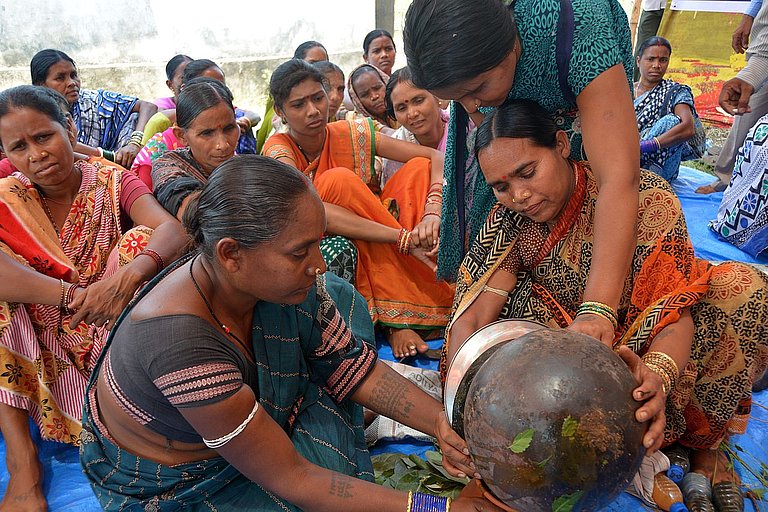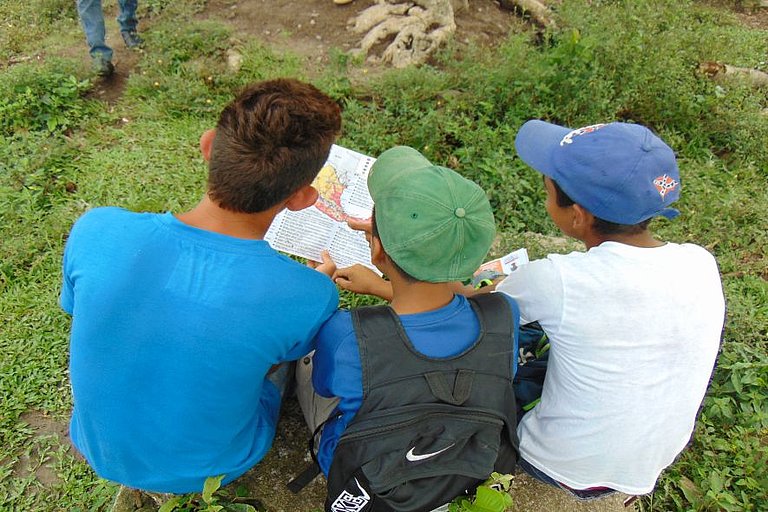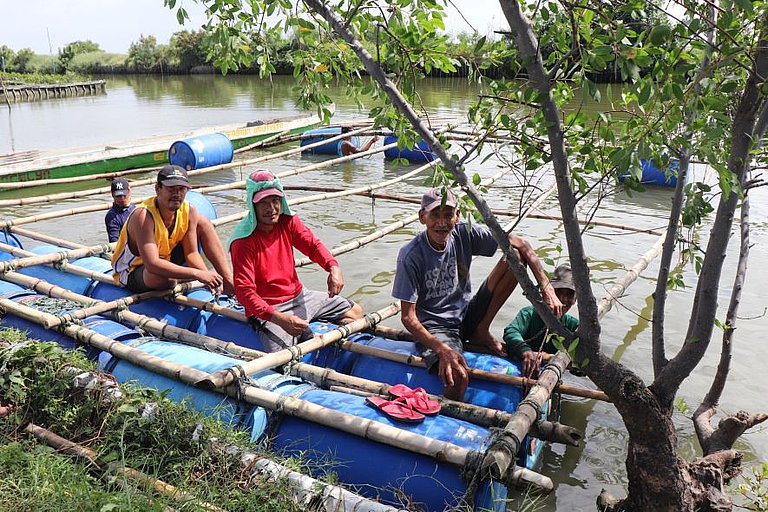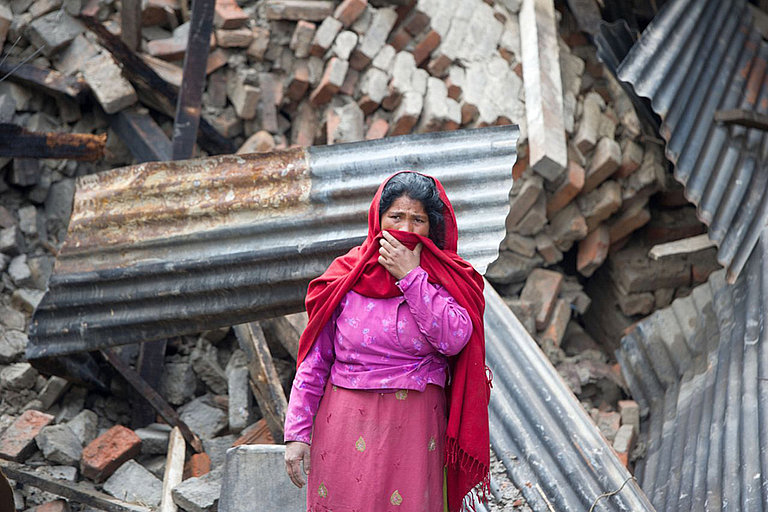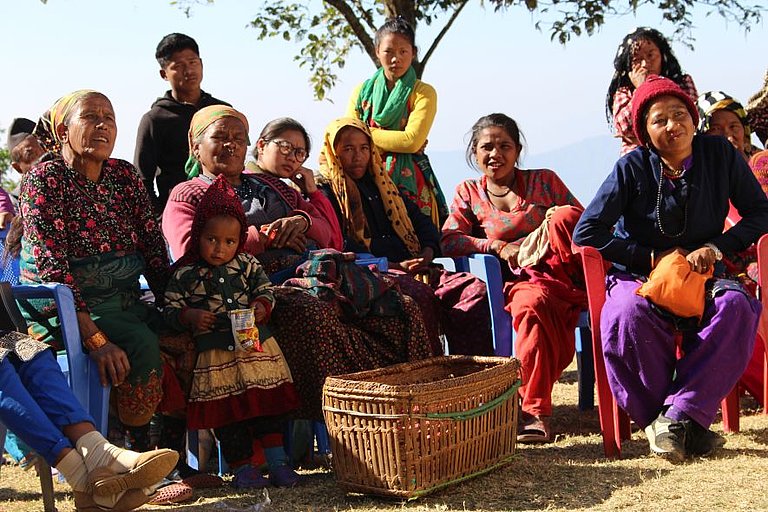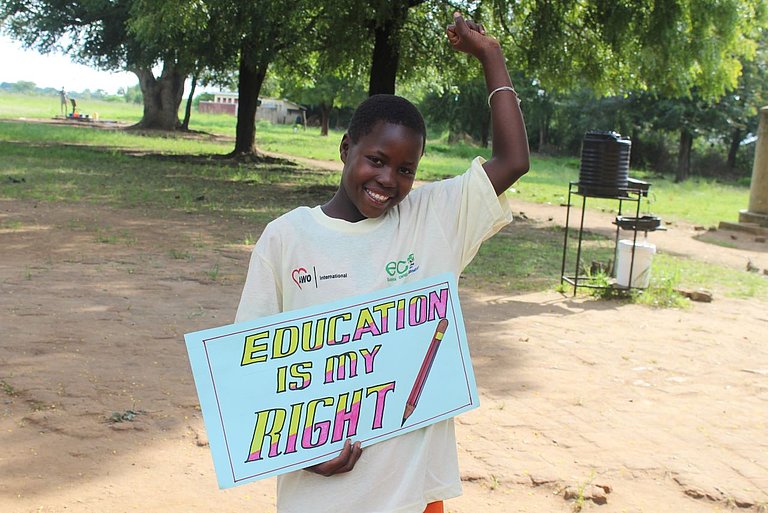Around 75 percent of people in rural areas live in poverty. Our rural development projects focus on strengthening the potential of those affected, their access to resources and promoting their participation in social, economic and political processes. Within this framework, we promote ecologically sustainable agriculture.
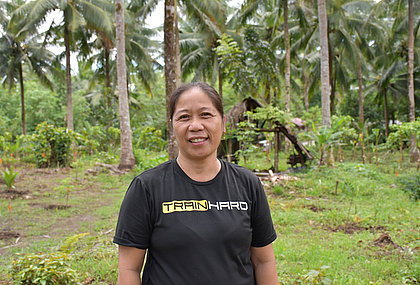
Disaster risk reduction in the Philippines
The geographical location of the Philippines makes the country vulnerable to natural disasters such as earthquakes, typhoons, volcanic eruptions and floods. In addition, climate change increases the frequency and intensity of natural disasters. Proactive preparedness allows people to better prepare for these climate-related risks and minimises the impact on the country's life and infrastructure. In cooperation with the local partner organisation CONCERN, we promote disaster risk reduction in the Philippines.
more information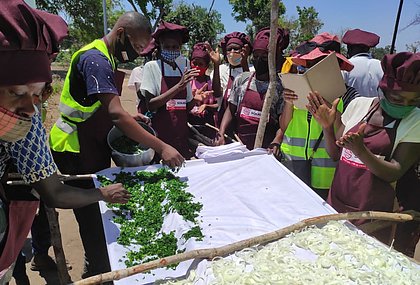
Reconstruction after hurricanes in Mozambique
Mozambique was largely destroyed by hurricanes Idai and Kenneth in 2019. In 2020 and 2021, two more storms exacerbated the situation enormously. Many people lost their homes and are still waiting for assistance in temporary camps. The regions also suffer from the effects of the COVID pandemic and violent conflicts. AWO International has set itself the goal of strengthening the affected families together with Solidar Suisse.
more information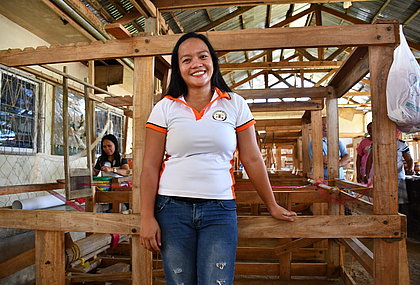
Philippine farmers switch to green production
Together with the local partner organisation ECOWEB, AWO International supports smallholder households and strengthens the local capacities of the agricultural industry in Sibagat. Filipino farmers are introduced to the use of natural materials and practices that are climate-friendly and sustainable in order to protect the environment, improve their livelihoods and reduce poverty. In this way, local capacities can be strengthened and the impacts of extreme weather events and climate change can be better managed.
more information![[Translate to Englisch:] [Translate to Englisch:]](/fileadmin/_processed_/f/4/csm_Finished_Greenhouse_constuction_Guara_Guara__Buzi__ccexpress_dd6f2be722.jpeg)
Mozambique
Since the end of the civil war in 1992, the living conditions of the people in Mozambique have been improving. Nevertheless, the country is strongly affected by extreme weather events such as cyclones and droughts, the Covid pandemic, as well as violent conflicts and a strained economy.
more information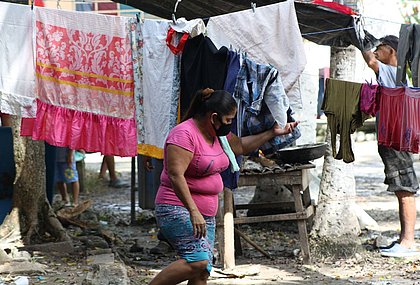
After Hurricane Eta and Iota: Reconstruction and food security for families
In November 2020, two hurricanes hit the Potrerillos region in Honduras. Only within 15 days. With a reconstruction project, AWO International helps families to get back into a normal life and strengthens disaster risk management within the community in order to prepare the community for future natural disasters.
more information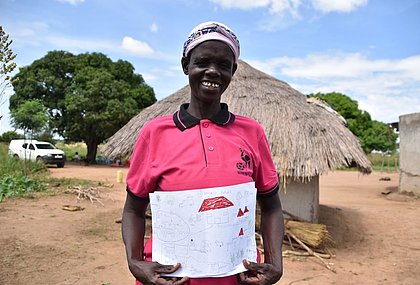
Securing livelihoods and promoting social justice
The project region Otuke is a rural district in northern Uganda. The region is one of two areas most affected by malnutrition. In general, the undernutrition situation in Otuke is exacerbated by a number of overarching problems. People in the region face acute challenges such as food insecurity, limited access to safe drinking water and poor hygiene practices.
more information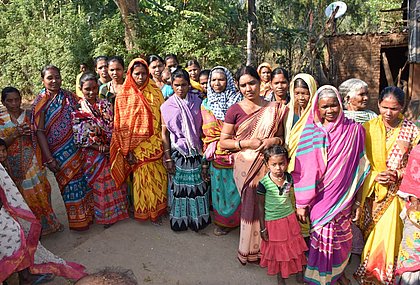
Building Climate Resilient Communities for Food and Income Security in India
Odisha has been ranked 9th among the nine poorest states in India where 29.35 % of the population is below the poverty line (Source: Global Multidimensional Poverty Index (MPI) 2022, UNDP & OPHI). The effects of climate change are aggravating the problems - many families are experiencing food and nutrition insecurity. Our project in collaboration with local partner Madhyam Foundation promotes sustainable farming practices, creates access to irrigation structures and identifies diversified income opportunities.
more information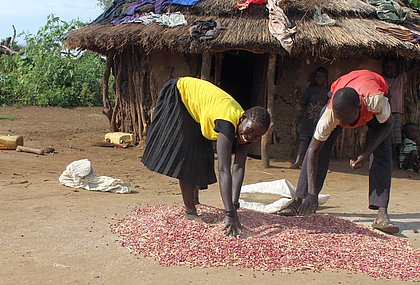
Fight against human trafficking in Karamoja
Together with our local partner organization ECO, we support smallholder families in Karamoja to improve their living conditions, food and nutrition security, and reduce their risk of becoming victims of human trafficking.
more information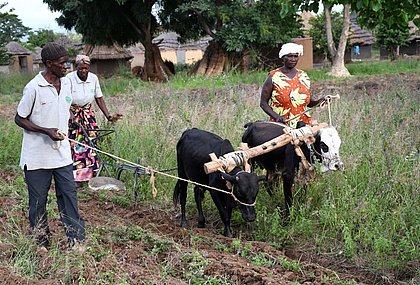
Climate Action Model Villages in Uganda
In Uganda, the devastating effects of climate change are clearly visible: wilting crops, flooding and dry wells threaten the food and livelihoods of a population largely dependent on agriculture. To address this acute threat, we launched a project in October 2022 with our Ugandan partner organization AFARD, bringing together food security, environmental protection and disaster risk reduction.
more information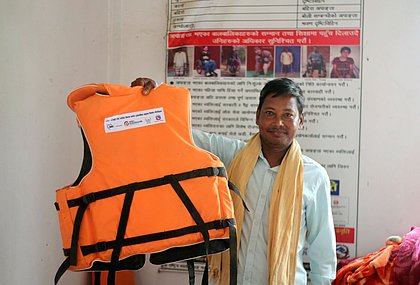
Disaster Risk Reduction and Climate Change Adaptation in Nepal
Nepal is one of the most vulnerable countries in the world to the effects of climate change. According to the Global Climate Risk Index 2020, Nepal ranks 10th among the most vulnerable countries. Every year, climate events such as floods and landslides, droughts and forest fires, and heat and cold waves lead to loss of livelihoods, especially in remote rural areas. This is where our Disaster Risk Reduction and Climate Change Adaptation project comes in.
more information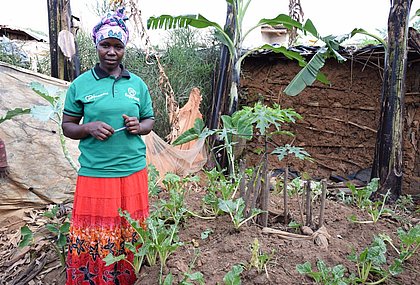
Improvement of living conditions in the Nakivale refugee camp
In Isingiro District in southwestern Uganda, the proportion of refugees is 19 percent. With our partner organization COVOID, we are improving living conditions for refugees and locals by strengthening nutrition, income and social cohesion.
more information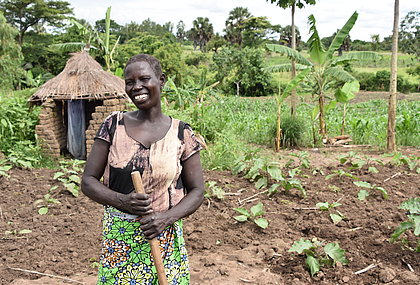
Food Security and Empowerment of Refugees and Host Communities in Uganda
West Nile is the biggest host of refugees and asylum seekers in Uganda. Majority of them face persistent realities of food insecurity, malnutrition and climate change. Together with our partner RICE West Nile, we support refugees and asylum seekers to improve their situation and strengthen their resilience.
more information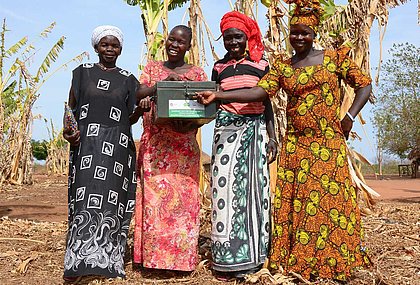
Improving living conditions for refugees and host communities in northern Uganda
Bidibidi is one of the largest camps for refugees in the world. Many of the people are living on the margin of poverty, and food insecurity is a major challenge. Together with our partner AFARD, we support refugees to improve their situation.
more information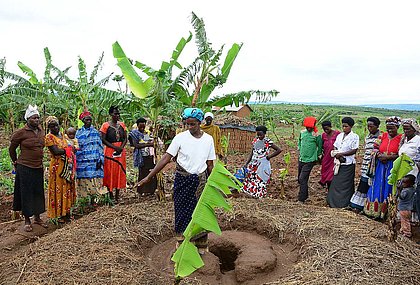
Food security for refugees and host communities in northern Uganda
The Lamwo district in northern Uganda is one of the poorest regions in the country. Nevertheless, the communities here take in refugees from South Sudan. Our project supports refugees and local communities in securing their food, increasing their income and strengthening social cohesion.
more information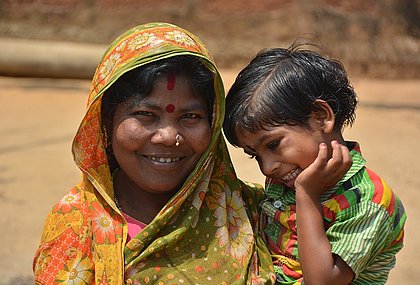
A world without hunger: Securing food in Odisha
Odisha is one of the poorest states in India. Since 2009, AWO International has been successfully implementing poverty reduction and food security projects in three districts with its partner organisation Madhyam. With additional funding from the special initiative "A World Without Hunger", 83 villages in two further districts have been supported since 2015.
more information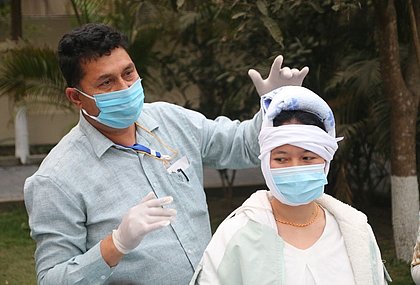
Better prepared for disasters
Climate change negatively influences the livelihoods of millions of people, especially in the Global South. South Asia is particularly vulnerable to natural disasters due to its geo-climatic characteristics. Our disaster risk reduction project strengthens community resilience and trains the Nepalese AWO staff and local partners on disaster risk reduction activities.
more information